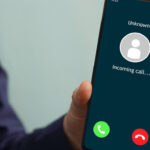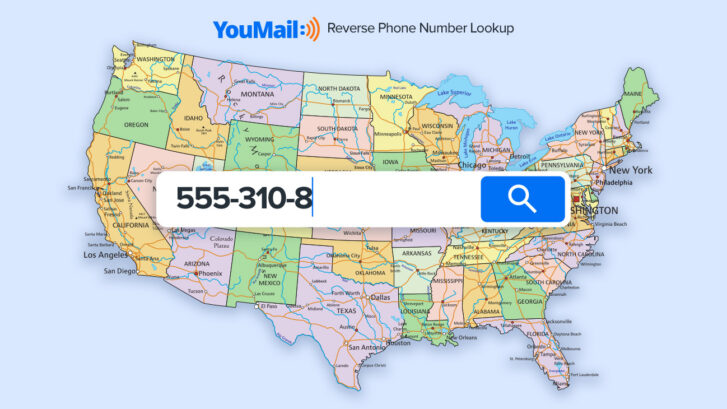Spam Call Lookup: Your Guide to Avoiding Unwanted Calls
In an era where our phones are constantly buzzing, understanding and managing spam calls have become crucial. This comprehensive article aims to explore the ins and outs of spam call lookup, a tool that’s becoming increasingly essential in our daily lives.
Find you who is really calling you
Introduction to Spam Call Lookup
Understanding Spam Calls
Spam calls are unsolicited calls that often aim to sell something, scam the receiver, or simply disturb. These calls can be a nuisance and, in worst-case scenarios, a threat to personal security and privacy.
Importance of Spam Call Lookup
Spam call lookup services help in identifying these unwanted calls, enabling individuals to make informed decisions about whether to answer, block, or report these calls.
What is Spam Call Lookup?
Definition of spam call lookup
Spam call lookup refers to the process or service that identifies the nature and origin of an unsolicited call. It can reveal the caller’s identity, their location, and whether others have reported the number as spam.
How It Works
These services typically use a combination of publicly available data and user-generated reports to compile a database of known spam numbers.
Types of Spam Calls
Robocalls
Robocalls are automated calls made using a computerized autodialer that delivers a pre-recorded message. These are often used for political campaigns and telemarketing.
Scam Calls
Scam calls are malicious calls intending to defraud the receiver. They may pose as legitimate institutions to elicit personal information.
Telemarketing Calls
Telemarketing calls are made by companies to promote products or services. While not always harmful, they can be persistent and disruptive.
How to Identify Spam Calls
Recognizing Common Characteristics
Spam calls often exhibit certain traits, such as unfamiliar numbers, absence of caller ID information, or pre-recorded messages.
Tips and Tricks
You can use various strategies to identify spam calls, like checking the number online, being cautious with unknown callers, or using spam detection apps.
Tools for Spam Call Lookup
Online Directories
Websites like the YouMail Directory provide databases where you can search for phone numbers to see if they’re marked as spam.
Mobile Apps
There are apps designed specifically for identifying and blocking spam calls.
Network Provider Services
Many network providers offer services that identify or block suspected spam calls.
The Legal Aspect of Spam Calls
Regulations and Laws
There are laws and regulations in place, like the Telephone Consumer Protection Act (TCPA), that aim to protect consumers from unsolicited calls.
Consumer Rights
As a consumer, you have certain rights and protections against spam calls, which vary depending on your country’s legislation.
How to Protect Yourself from Spam Calls
Using Call Blockers
Call blocking apps can automatically filter out known spam numbers.
Do Not Disturb Mode
Setting your phone on Do Not Disturb mode can limit calls to only your contacts.
Reporting Spam Calls
Reporting spam calls to relevant authorities or your network provider can help in the fight against spam.
The Future of Spam Call Lookup
Technological Advancements
Advancements in AI and machine learning are improving the efficiency of spam call detection. Spam call lookup Apps like YouMail help users identify spam calls and block them from calling back.
Predictions and Trends
As technology evolves, we can expect more sophisticated methods for spam call identification and prevention.
FAQs about Spam Call Lookup
What is the most effective way to stop spam calls?
The most effective way to stop spam calls is by using call-blocking apps and services. Additionally, registering your number on national do-not-call lists and being cautious about sharing your number can significantly reduce spam calls.
Are spam call lookup services free?
Many spam call lookup services like YouMail offer basic features for free, while more advanced features might require a subscription. Other popular free services include Hiya, Truecaller, and the National Do Not Call Registry.
Can answering a spam call be dangerous?
Answering a spam call can be risky if it leads to sharing personal information or falling for a scam. However, simply answering a call is usually not dangerous in itself. It’s important to remain cautious and not divulge any sensitive information.
How do I report a spam call?
Spam calls can be reported to the Federal Trade Commission (FTC) in the U.S. or equivalent regulatory bodies in other countries. Additionally, many call-blocking apps and phone service providers offer options to report spam calls directly through their platforms.
Can spam callers steal personal information?
Spam callers can potentially steal personal information if you inadvertently provide it during the call. This can happen through phishing schemes where the caller pretends to be from a legitimate organization and asks for sensitive details. Always verify the caller’s identity before sharing any information.
Final Thoughts
Spam call lookup is a vital tool in the modern world, helping to protect our privacy and sanity. By understanding how it works and utilizing the available tools, we can significantly reduce the impact of these unwanted calls.
More on spam number lookup:
- Who’s That Call Really From? A Guide to Unmask Unknown Callers with Reverse Lookup

- Is This Number Safe?

- How to Look Up the Phone Number of Someone Who is Calling You: A Guide to Reverse Phone Number Lookups and Why You Should Be Aware of Scam Calls

- Free ways to find out who is calling you with reverse lookup


